Premio Permaculture Magazine
Gestionado en colaboración con la revista Permaculture Magazine.
El Premio a la Revista de Permacultura es para personas, comunidades, empresas, grupos y organizaciones que pueden demostrar un trabajo inspirador de permacultura durante tres años o más.
Busca proyectos de permacultura dirigidos de forma local que estén regenerando tierra dañada; mejorando el hábitat y la biodiversidad; ayudando a que la gente adquiera habilidades prácticas y comunitarias; aportando valor a la producción y al desarrollo de las economías locales; construyendo comunidad mediante la creación de un pegamento social y una mayor resiliencia económica; modelando nuevas formas de cooperación y nuevos paradigmas culturales.
Galardonados para 2025
Los Premios se concedieron a dos ganadores que se repartieron un fondo de 25.000 libras esterlinas proporcionado por Permaculture Magazine.
A continuación figuran los ganadores y otros proyectos preseleccionados.
Ganador
Battmung
Battmug se fundó para crear un pueblo de permacultura sostenible en Corea del Sur donde la gente joven pueda prosperar y aprender sobre el diseño de permacultura.
Busca garantizar la supervivencia del pueblo, que está en riesgo debido a una población envejecida. A través de la permacultura, Buttmung tiene como objetivo resucitar el pueblo. Ofrece un curso de diseño de permacultura (PDC, por sus siglas en inglés) de 72 horas para que los jóvenes y aquellos que perseveran para convertirse en diseñadores activos mantengan el contacto mediante el grupo Battmung Friends.
Desde que se fundó en 2021, Battmung ha:
- Diseñado un campo de hojas de 3000 pyeong (unos 2,5 acres) basándose en el flujo del agua, y ha plantado más de 70 plantas acompañantes, así como trabajado para restaurar la tierra con consuelda, trébol y especies autóctonas.
- Organizado una serie de eventos gastronómicos inspirados en los restaurantes de permacultura de Berlín.
- Sido seleccionado por el Ministerio del Interior y el Safety’s Youth Village Creation Support Project. De los 39 pueblos juveniles, Battmung fue el único centrado en la permacultura.
- Se ha comprometido con 300 jóvenes, creado 5 trabajos y colaborado con más de 20 residentes locales para un festival que atrajo a más de 10 000 visitantes.
Battmung, al reconocer la importancia de conectar a la gente, también contribuyó a la creación de la Permaculture Institute of Korea (P.I.K) en 2023. Su objetivo es organizar su red regional y regenerar Corea del Sur mediante la permacultura, restaurando el suelo, las cadenas de alimentos, la concienciación ecológica y las economías locales.
- 2025
- Permaculture Magazine Award
Información sobre el proyecto
- Korean
- https://www.instagram.com/battmung.log/
- battmung@naver.com
- Sangdong-eup, Yeongwol-gun, Gangwon-do, South Korea
Ganador
Eco Centro Allpa Tarpuna
Eco Centro Allpa Tarpuna trabaja para la regeneración de las tierras degradadas, la soberanía alimentaria y la autonomía de la comunidad, con el foco puesto en las comunidades indígenas de Ecuador.
Se fundó en 2004 y nació a raíz del regreso de sus fundadores a sus comunidades después de vivir los impactos negativos de la agricultura y agroquímicos convencionales. Este regreso marcó el principio de un camino hacia la reconexión con el conocimiento ancestral indígena y la adopción de la permacultura y la producción orgánica.
Uno de los logros clave ha sido la recuperación de los suelos degradados por los monocultivos y el eucalipto. Aunque lento, este proceso ha demostrado los beneficios de un acercamiento regenerativo y ha fortalecido la resiliencia de la comunidad. Actualmente, Allpa Tarpuna se centra en lo siguiente:
- Formar a las comunidades locales en prácticas sostenibles.
- Rescatar y preservar el conocimiento indígena ancestral.
- Fomentar la autosuficiencia alimentaria.
Allpa Tarpuna integra la bioconstrucción, la energía renovable y la gestión sostenible del agua en sus prácticas. Asimismo, anima a la preservación de semillas ancestrales y de técnicas agroecológicas como la rotación de cultivos, lo que reduce la dependencia de los químicos.
En el futuro, quiere ampliar la formación al diseño de permacultura, combinando el conocimiento indígena con soluciones modernas regenerativas. Busca fortalecer a más agricultores locales, promoviendo diseños que restauren la conexión entre la gente y la naturaleza.
Allpa Tarpuna es una familia indígena viva que siembra la regeneración e inspira un equilibrio sostenible y resiliente.
- 2025
- Permaculture Magazine Award
Información sobre el proyecto
- Spanish
- https://allpatarpuna.org/
- https://www.facebook.com/people/Ecocentro-Allpa-Tarpuna
- https://www.instagram.com/ecocentroallpa_tarpuna/
- Tumbaco, Pasaje Los pinos S/N y Miguel Angel de Asturia Quito Pichincha 170903 Ecuador
Ganador
HortaFCUL
HortaFCUL es un proyecto comunitario de permacultura con sede en la Facultad de Ciencias de la Universidad de Lisboa (FCUL).
La iniciativa partió de un grupo de estudiantes de biología preocupados por la brecha existente entre los ideales de sostenibilidad y el impacto ambiental de la universidad.
Este proyecto ascendente ha desarrollado un importante papel como catalizador de conocimientos prácticos de base científica. Hoy en día, HortaFCUL es una comunidad resiliente, sostenible e integradora, que permite al público en general aprender más sobre soluciones basadas en la naturaleza. Cuenta con cinco subproyectos a nivel de campus y se basa en un colectivo de guardianes voluntarios organizados horizontalmente para mantener las zonas verdes del proyecto.
HortaFCUL, como proyecto de permacultura, alcanza sus objetivos centrales cerrando bucles funcionales relacionados con las actividades humanas. Por ejemplo:
- Ciclo social: HortaFCUL ha organizado más de 200 talleres, charlas y visitas guiadas con más de 5000 personas. Los temas están relacionados con la producción de alimentos, la gestión de ecosistemas y la dinámica de grupos sociales. HortaFCUL también ha celebrado más de 450 jornadas de trabajo invitando a voluntarios a unirse a las actividades.
- Ciclo del conocimiento: hasta el momento, HortaFCUL ha producido más de 10 productos científicos escritos.
- Ciclo de producción: HortaFCUL ha producido cerca de 50 toneladas métricas de compost elaborado por tutores y voluntarios a partir de los residuos orgánicos de los huertos del campus.
- Ciclo ecológico: HortaFCUL tiene cuatro ecosistemas complejos, que incluyen un huerto comestible, varios agrobosques, dos pequeños bosques de crecimiento rápido y muchos arriates elevados. HortaFCUL tiene una media de 20 especies de plantas perennes por cada 100 metros cuadrados.
- Ciclo de los materiales: la mayor parte de la infraestructura presente en el proyecto se ha reciclado a partir de materiales usados, como maderas, metales o alfombras.
- 2025
- Permaculture Magazine Award
Información sobre el proyecto
- Portuguese
- https://ciencias.ulisboa.pt/pt/horta-fcul
- https://www.facebook.com/hortafcul/
- https://www.instagram.com/hortafcul/
- hortafcul@gmail.com
- Campo Grande Lisbon Lisbon 1749-016 Portugal
Ganador
NGO Permaculture in Ukraine
La ONG Permaculture Ukraine, que coordina una red de centros de permacultura, ofrece formación, eventos y recursos educativos en toda Ucrania, garantizando también la accesibilidad a los desplazados internos y al antiguo personal militar.
La organización se fundó tras el primer Curso de Diseño de Permacultura (CDP) en Ucrania en 2011, y ha celebrado al menos un CDP anual, buscando activamente financiación para que la formación sea accesible a los grupos vulnerables.
Tras la invasión a gran escala de 2022, su enfoque se amplió para incluir:
- Acoger a personas desplazadas.
- Mejorar la seguridad alimentaria.
- Estudiar la regeneración del suelo tras daños militares.
- El uso de la jardinería como herramienta para la rehabilitación de traumas y la reconstrucción de la comunidad.
Los 14 centros de permacultura ofrecen formación, refugio para desplazados internos y animales abandonados por la guerra, y rehabilitación para niños y adultos. Sus diseñadores también crean proyectos comunitarios, como escuelas y hogares para personas con discapacidades. A pesar de los ataques aéreos y los apagones, la ONG Permaculture Ukraine organizó con éxito un festival de permacultura de dos días en el jardín botánico de Kyiv en septiembre de 2024, al que acudieron 100 participantes deseosos de interactuar con los mejores profesionales de la regeneración.
La ONG Permaculture Ukraine capacita a los ucranianos para una vida sostenible y un cambio transformador. Gracias a su participación activa en las redes sociales y a su colaboración con ecoaldeas, redes de residuos cero y otros movimientos ecologistas, amplía su influencia e inspira a un público cada vez mayor a adoptar los principios de la permacultura para la regeneración de Ucrania.
- 2025
- Permaculture Magazine Award
Información sobre el proyecto
- Ukrainian and English
- https://permaculture.in.ua
- https://www.facebook.com/PermacultureUkraine
- https://www.instagram.com/permaculture.ua
- 84 av. Holosiivsky, Kyiv, 03040, Ukraine
También preseleccionados
Forest School Mikke
Located in the mountainous island of Shikoku, Japan, Forest School Mikke exists to foster a culture of creative actions towards a sustainable and regenerative society.
Mikke is based in Kamiyama, a small town in Tokushima Prefecture. Like many rural towns across Japan, Kamiyama is on a path towards an ageing society and needs to create a reason for younger people to move to or stay in the town. It is within this context that Mikke is engaged in two major initiatives: school management and forest restoration.
Mikke is an alternative school where elementary school-aged children (6–12 years old) learn through an interdisciplinary curriculum based on food, clothing, and shelter, using the forest as a learning environment. Since its opening in 2022, 28 students have enrolled, and 191 participants have joined short-term programs such as summer school. Through its educational activities, Mikke fosters exchanges between people of different generations, fields, and backgrounds in the community. To date, it has held 11 community events with a total of 270 participants.
Like other rural areas in the region, Kamiyama is covered with unharvested monoculture forests of cedar and cypress, planted as part of post-war policies. This has led to a decrease in biodiversity, soil degradation and other undesirable downstream effects. The team at Mikke works to restore these neglected forests so sunlight can reach the forest floor and foster healthy ecosystems. Mikke has planted 70 fruit trees. By the autumn of 2026, to coincide with a new school building, Mikke aims to source timber from its own land and set up a firewood station.
- 2025
- Permaculture Magazine Award
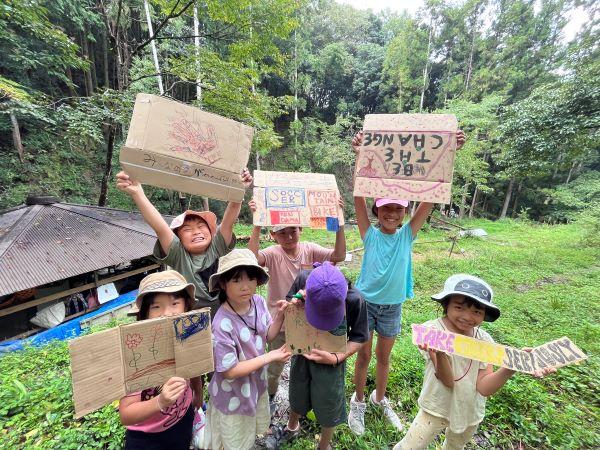
Información sobre el proyecto
- Japanese
- https://www.mikkeforest.org/
- https://www.facebook.com/mapfullofknots/
- https://www.instagram.com/mikke.forestschool/
- https://www.instagram.com/mikke.forestschool/
-
257 Minamiuetsuno, Jinryo-aza, Kamiyama-cho Myozai-gun Tokushima prefecture 771-3311 Japan
Habilin Farms
Habilin Farms is a hub for both agro-education and community empowerment in the Philippines, offering workshops, training, and hands-on experiences in permaculture and sustainable living.
Founded by a small group of like-minded individuals, the farm started as a modest initiative to grow organic produce while practicing regenerative farming methods. Located in the rural landscapes of Tayabas, Quezon, the farm sits on fertile land surrounded by rich biodiversity and native flora, making it an ideal hub for permaculture. Over time, Habilin Farms evolved into a model of eco-tourism and community empowerment, offering immersive experiences like bamboo workshops, forest camping, and farm-to-table meals.
Since its founding, the farm has made some significant achievements, including:
- Building a strong connection with local farmers through the Organic Farmers’ Association.
- Supporting small scale farmers through projects like the Farm-to-Tray Project, a collaboration with local hospitals that provides healthy, chemical-free vegetables from organic farmers.
- Implementing a locally focused organic certification scheme (known as a Participatory Guarantee System).
- Successfully lobbying for the passing of a city ordinance institutionalising organic agriculture in Tayabas.
- Conducting several permaculture workshops and creating opportunities for eco-conscious visitors to engage in nature-based activities.
Its ongoing initiatives aim to expand organic agriculture, eco-tourism, and community-based projects, further establishing Habilin Farms as a pioneer in sustainable development and regeneration in the region.
- 2025
- Permaculture Magazine Award
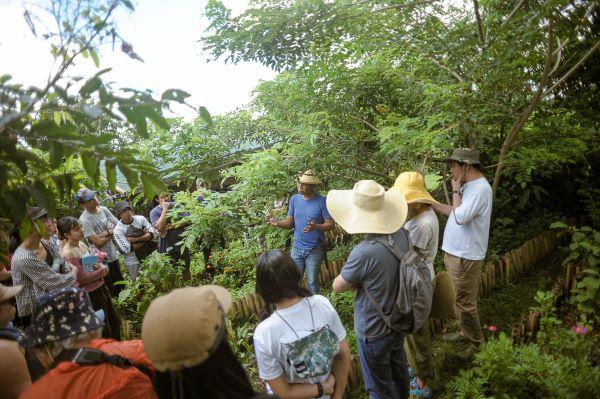
Información sobre el proyecto
- English
- https://www.habilinfarms.com/
- https://www.facebook.com/habilinfarms
- https://www.instagram.com/habilinfarms/
-
Sitio Padilla, Brgy Ilayang Bukal Tayabas City Quezon Province 4327 Philippines
Seaforestation
Seaforestation.co regenerates life in the ocean and revitalises livelihoods for seaweed farmers, smallholder rice farmers, and coastal communities – many of whom are on the frontlines of climate disruption.
Founded in 2022, Seaforestation.co was established to address the urgent need for ocean regeneration and climate justice. Specifically, the organization focuses on restoring primary productivity in marine ecosystems, which are essential for global food security and stabilising economies in coastal and rural areas affected by climate change. By fostering sustainable economies and introducing innovative marine permaculture techniques, Seaforestation.co works to foster sustainable economies while addressing critical environmental and economic challenges.
Operating across national borders, Seaforestation.co targets economically disadvantaged communities, particularly in Southeast Asia. It has established operations in regions such as the Central Philippines, where climate impacts are most severe. Many of these communities depend on vulnerable ecosystems for their survival, including seaweed farming and rice cultivation, both of which are increasingly threatened by heatwaves, droughts, and floods.
Seaforestation has successfully implemented a half-acre marine permaculture pilot, demonstrating the effectiveness of regenerative ocean farming. This initiative has enabled the production of over 8,000 litres of seaweed biostimulant, benefiting nearly a thousand rice farmers by improving crop resilience and yields in the face of climate challenges.
- 2025
- Permaculture Magazine Award
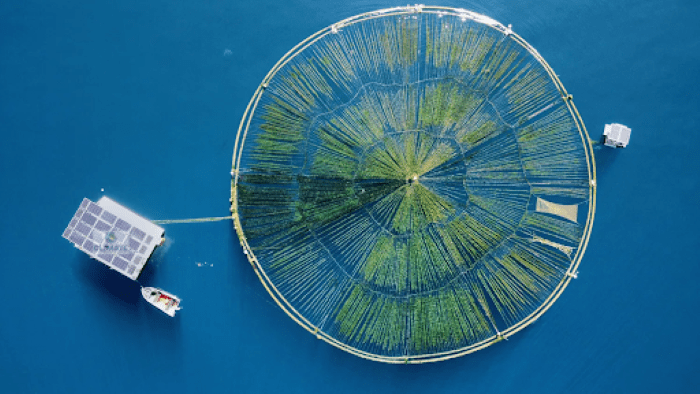
Información sobre el proyecto
- English
- https://www.seaforestation.co/home
- 113 Cherry Street, #48631 Seattle Washington 98104 United States
The Mesoamerican Permaculture Institute
The Mesoamerican Permaculture Institute (IMAP) was founded in 2000 by a group of Maya Kaqchikel community members from San Lucas Tolimán, along the shores of Lake Atitlán, Guatemala.
The founders were deeply concerned about the environmental and social problems that affected so many living beings around the lake. The forced imposition of monoculture cash crops threatened communities’ food sovereignty, reduced land access, and contributed to environmental degradation. These farmers knew their ancestors lived in harmony with nature, stewarding the land and caring for their communities’ food and medicinal needs with native plants. However, colonialism violently wrested those cultural, spiritual, and agricultural practices from communities.
IMAP has worked for 24 years, combining permaculture education with the recuperation and application of ancestral knowledge. It develops knowledge and skills needed to guarantee food sovereignty, community development and biodiversity. IMAP has supported 15,000+ small farmers to produce, harvest, and use native plants and seeds like amaranth and chia in polyculture plots. These plants are better adapted to local conditions and resistant to disease, fighting malnutrition and helping local people become more resilient in the face of climate change.
IMAP believes efforts to support local biodiversity must include:
- Embracing local growing traditions.
- Invigorating the rural economy.
- Preserving Indigenous cultures.
By focusing on food sovereignty – the right to produce and eat wholesome, culturally relevant food – sustainable, agroecological solutions are created that provide sustenance, promote ancestral practices, and support campesino farming based on respect for Mother Earth.
- 2025
- Permaculture Magazine Award
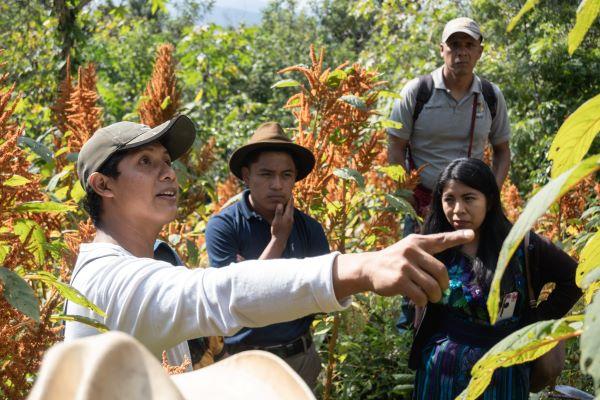
Información sobre el proyecto
- Spanish
- https://www.imapermacultura.org/
- https://www.facebook.com/imapermacultura
- (502) 4549-0578
- imapermacultura@gmail.com
- Caserío Pachitulul, San Lucas Tolimán, Sololá, 07013, Guatemala
The Pitak Project
Through various projects, community engagements, and deep respect for traditional knowledge, The Pitak Project has empowered smallholder farmers and countless members of the public to become aware of and embrace practices that honour both the earth and its peoples.
Founded in 2013, in Northern Luzon, Philippines, Pitak is a less-than-hectare farm located 250 feet above sea-level. Pitak is the Ilocano (the main language spoken in Northern Philippines) term for mud. The name symbolises the bond of the rich soil and water that gives life. It also embodies the founders’ aspiration to build naturally and produce food the permaculture way. This humble piece of land has become a living classroom and a vibrant hub of life and living.
Pitak’s work includes regenerative agriculture that revitalises soil health and ecosystems, while also supporting local smallholder farmers to secure sustainable livelihoods. The work is not just about farming: it’s about healing the disconnect that so often divides people from the very soil beneath their feet. It applies regenerative principles in both the cultivation of the land and the cultivation of the community, aiming for solutions that enhance food security, well-being, and dignity. Its initiatives foster economic independence, preserve indigenous knowledge, and build resilience in the face of challenges like climate change and resource scarcity.
Pitak believes in the power of small-scale, grassroots efforts to ignite significant change. The impact has rippled outwards, inspiring similar initiatives that continue to contribute to forging a network of practitioners who are committed to ecological and social regeneration.
- 2025
- Permaculture Magazine Award
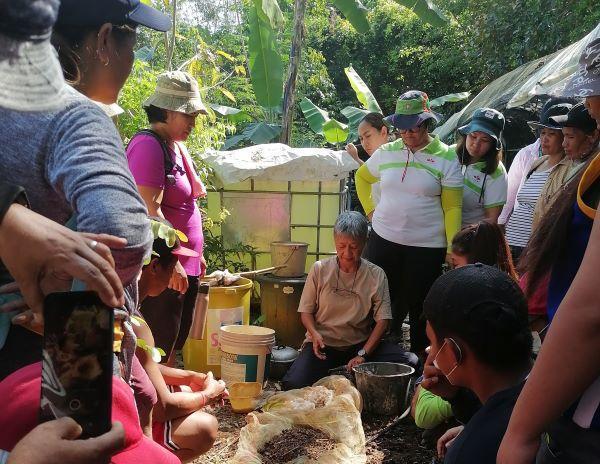
Información sobre el proyecto
- English
- https://thepitakproject.com/
- https://www.facebook.com/ThePitakProject
-
Purok 3, Pideg Tubao La Union 2509 Philippines
Youth Initiative for Community Empowerment
Youth Initiative for Community Empowerment (YICE) is a refugee-led organization that focuses on implementing regenerative practices for subsistence farmers in rural Uganda, especially women, youth, and refugees.
YICE employs permaculture techniques that align with nature, enabling larger harvests, reducing deforestation, and maintaining healthy soil and water, which helps mitigate climate change. In Kassanda and Isingiro Districts, YICE trains rural communities, equipping them with practical skills to enhance nutrition and earnings while fostering collaboration through small groups. The organization also provides vital resources like farming equipment, water harvesting kits, and seeds, which many farmers find unaffordable.
YICE empowers trainees to achieve sustainable food security, improve health, restore soil and water, and build economic resilience. By collaborating with local agricultural organizations and government entities, YICE offers tailored training in regenerative farming and climate change awareness, along with ongoing support for establishing traditional food gardens and fruit tree plantings.
Since its inception, YICE has:
- Directly impacted 8,540 individuals (81% women and children) who have achieved a 75% increase in food security and a 34% increase in incomes from food sales.
- Planted nearly 8,000 fruit trees and regenerated over 1,000 acres of land.
- Earned multiple awards, including the 2019 Spring Prize Award under Young Projects Category, the 2021 Ashden Award for Regenerative Farming, the 2019 UNDP Climate Change Award and the 2020 Youth, Water and Climate Award
- 2025
- Permaculture Magazine Award
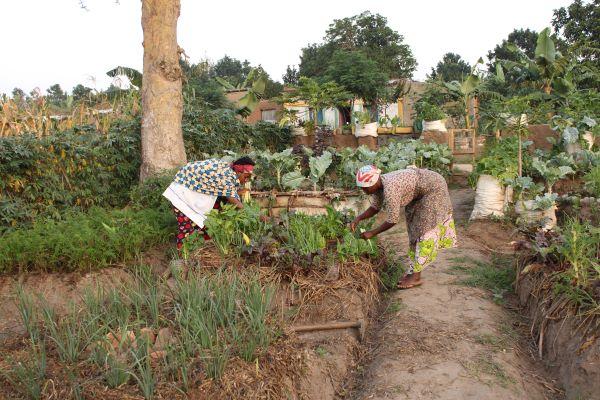
Información sobre el proyecto
- English
- https://www.yiceug.org/
- https://x.com/YICEUganda
- info@yiceug.org
- Nakivale Refugee Settlement Isingiro District South Western Uganda 00256 Uganda